Trending Now
We have updated our Privacy Policy and Terms of Use for Eurasia Group and its affiliates, including GZERO Media, to clarify the types of data we collect, how we collect it, how we use data and with whom we share data. By using our website you consent to our Terms and Conditions and Privacy Policy, including the transfer of your personal data to the United States from your country of residence, and our use of cookies described in our Cookie Policy.
health-security
Why cutting USAID will hurt American foreign policy
Ian's Quick Take: Hi everybody. Ian Bremmer here and a Quick Take for today on USAID, the US Agency for International Development, which is in the process of being shut down. Nearly all Washington staff have been put on leave, they're closing missions abroad, the State Department moving to evacuate all staff around the world. Why should we care? Does this matter? This agency was set up back over 50 years ago, 1961, by then President John F. Kennedy, and it was meant to coordinate the distribution of foreign aid for the United States all over the world and differentiate that from military support that was provided by the United States.
Secretary of State Marco Rubio has said that the US isn't providing charity, that's not what foreign aid is, that it should be providing support for US national interests. And I agree that it should be providing support for US national interest, but it is important to recognize that actually when USAID was set up, it was set up in part as charity, that President Kennedy's position was that the United States had a moral obligation to support poorer people, and poorer countries around the world. They are fellow human beings, after all, and the United States has historically benefited massively from developing resources all around the world, and frequently, the people that lived in those countries didn't get very much as a consequence, and the US has benefited massively, as have other wealthy countries, from industrialization, and putting carbon into the atmosphere that now poor countries can't do because of climate change, and we're saying, "We need to transition," but the US, of course, has gotten the benefits of that historically.
You know, my view is, I'm okay with charity. I actually think that helping save lives with food and medicine for millions of people and especially babies and children. I mean, even if it did nothing for the United States directly, I would be okay with spending some of the money of American taxpayers on that, especially as opposed to say a war in Afghanistan or the latest sort of bomber program that is expensive and more than the Americans need. So, I push back on the US should never do charity argument. But leaving that aside, you don't need that argument to focus on the importance of USAID.
And I want to, before I get into the national interest side, I do want to say I am empathetic with why it is unpopular. Because at a moment when so many average Americans feel like the US government has not taken care of them, and this is why you see so much backlash against all of the illegal immigrants that have not been addressed by administrations for many years, and why there's so much backlash against the US establishment, whether it's Democrat or Republican, in saying, "What about the average working American? What about our healthcare? What about our public school system? What about things that you should care a lot more about than sending aid to brown people around the world?" Which is essentially what USAID is mostly doing. I get that. And in that regard, it's an easy target for Trump. It's a particularly easy target for Elon Musk. I would ask first, "Why tax cuts for and regulations written by billionaires in the United States before poor people and Americans?" That would be my higher priority if I was really, really angry and antagonized by how badly money is being spent in the US. But that's a different story.
The point is you don't need to make the argument of charity. It is very clear that US foreign aid supports America's economic and national security interests. It is growing markets for consumers, for American businesses and products all over the world. The US has the biggest businesses. It has the biggest market. It benefits the most from other countries around the world having more capacity to sustainably consume and engage with those businesses. America benefits in having more health security by containing disease and pandemics because those diseases and pandemics don't suddenly stop at the American border. The US benefits from aid that reduces insurgencies creating instability that leads to more illegal migration all over the world, many of whom ultimately end up in the United States. It creates more economic opportunity and safety and security in origin countries. And that is a carrot that matters. It's not just about sticks. It's a carrot for economic statecraft that gives the Americans more influence as opposed to say the Russians, or more importantly the Chinese.
Because getting rid of USAID and cutting back on all these programs creates a vacuum. And that is an opportunity for adversaries. I've already seen ministers from large African countries who have their American programs getting cut off, reaching out immediately to their counterparts, ministers in China saying, "Are you willing to send in the programs to replace the Americans that are leaving?" And China doesn't have the economic wherewithal, the Americans do, but they certainly will seize opportunities that are economically useful to them, long-term, because they have a much longer-term perspective on these things than a US administration that's gone in four years. So I worry about that.
I think that USAID has been America's principle interlocutor with civil society in developing countries. And to the extent that we care about those countries having systems that are more aligned with the values and standards that the United States has historically promoted, then you don't want to undermine that and allow the Chinese to come in, which has very little interest in civil society, indifferent to civil society. It's a source of intelligence for the United States. And we've seen that even if it's sometimes uncomfortable for the local governments who aren't necessarily in favor of that. It is true that all USAID projects are probably not going to ultimately be killed, that the State Department is going to take it over and Marco Rubio has said that, "There's a lot of corruption in USAID, and a lot of this money is misspent, and is spent badly, and breaks executive orders," and I am sure that is true, and I am sure that that corruption needs to be addressed. It wouldn't surprise me. The US is an incredibly bloated government system. But shooting first and asking questions later tends to kill innocencts. And that is of course the approach here. And the reality is, that Elon and Trump and their ability to act and be destructive is much greater than the damage control that the secretary of state can do at this moment. And the State Department just does not have the people or the infrastructure to execute on a lot of these programs once USAID is shut down.
And the message that this is really sending to allies is that the United States is an unreliable partner. You cannot count on it. That what they say to you in one administration is not going to be consistent in a second administration, in a way that is not true with other countries, most other countries, around the world. And so I continue to believe, as I did before Trump was inaugurated, that the US is going to see a lot of wins. A lot of countries are going to bend to his will because he's more powerful and he's willing to use that power directly. But that does not mean that the United States will long-term succeed in a law of the jungle approach, an approach which is all stick and no carrot, even when the stick is very, very big, but you can't wield it effectively for a long period of time. And other countries are learning that carrots are kind of smart. I mean, the Chinese originally perfected the all stick and no carrot approach and then saw that the United States was more effective in a lot of countries because they also had economic statecraft. They also had these commercial levers, and so the Chinese started saying, "Oh, we need to figure out how to deliver aid to a lot of these countries, doesn't have to be transparent, can work right with the governments, but ultimately that's going to give us more influence in these countries." And that is something that President Trump and his administration in the early weeks at least seemed to be jettisoning.
So I think this is Pennywise pound foolish. I think it is short-term beneficial to Trump and will look like a win for him and his base and long-term will undermine US power around the world and will of course make the world a less stable place. So on balance, I think this is a problem. It's not something that I think is going to go well. I would love to be proven wrong. I'll be watching it carefully and I think it's a good thing to be debating.
So that's it for me, and I'll talk to you all real soon.
GZERO event highlights: IMF chief, G7 vaccine pledges, global health security
For IMF Managing Director Kristalina Georgieva (above), a two-track pandemic means a two-track recovery that'll hurt the entire world in the long run. That's why she anticipates G7 leaders meeting this week will commit to sending about one billion doses of COVID vaccines to the developing world by the end of the year in new financing and shots unused by wealthy nations. Georgieva hopes it'll be a summit that gives all countries "a fair short in the arm, a fair shot at the future."
Georgieva was one of many experts who joined this week's two-part livestream discussion about post-pandemic health security hosted by GZERO Media in partnership with Flagship Pioneering, Beyond the Pandemic: A Radical New Approach to Health Security, presented in partnership with Flagship Pioneering.
This year's G7 meeting comes at the right time for its members to start thinking together about how to prevent the next pandemic, says UK Secretary of State for Health and Social Care Matt Hancock. Part of that conversation, in his view, should focus on how to reform the World Health Organization so it can quickly — and independently — act when the next new pathogen emerges.
G7 Comes at Right Time To Start Talking WHO Reform | UK Health Secretary Matt Hancock | GZERO Mediayoutu.be
Why has the much-touted COVAX global facility failed to deliver on its promise of equitable distribution of COVID vaccines despite big pledges from rich nations and multilateral organizations like the IMF? "Don't commit to what you cannot achieve," says Agnes Binagwaho, Vice Chancellor at the University of Global Health Equity, who calls out top Western donors for often not walking the talk on commitments — unlike China and India.
“Don't Commit to What You Cannot Achieve" — How the West Hurts COVAX | Agnes Binagwaho | GZERO Mediayoutu.be
When will we need COVID vaccine boosters against new variants? Probably before the fall, according to Moderna CEO Stéphane Bancel. And what about IP waivers? He says they are not the solution, and could have negative unintended consequences like stifling future investment in innovative technologies that allowed vaccines to be developed in record time.
Moderna CEO on Vaccine Boosters Timeline, IP Waivers | Stephane Bancel | GZERO Mediayoutu.be
Why is the US not investing huge amounts in health security for Americans and the rest of the world? For Ian Bremmer, the government sees value in spending big on national security or tech to counter China, but less so in bolstering our defenses against public health threats. If this continues, he warns, America will be as ill-prepared for the next pandemic as it was for COVID.
Why Doesn't the US Invest More in Health Security? | Ian Bremmer | GZERO Mediayoutu.be
Watch key moments from the first part of this series on June 8, "Beyond the Pandemic: A Radical New Approach to Health Security,"
This live event series is produced by GZERO Media in partnership with Flagship Pioneering. We thank our event partners, Partnership for a Healthier America and Medtronic.
- Biden goes to Europe, but is America really “back”? - GZERO Media ›
- Hard Numbers: Pakistan's train wreck, G7 global tax agreement ... ›
- How will we deal with the next pandemic? - GZERO Media ›
- What We're Watching: Tanzania's new leader, big global economic ... ›
- Expect Biden's first European trip to drive concrete steps with G7, EU - GZERO Media ›
- Expect Biden's first European trip to drive concrete steps with G7, EU - GZERO Media ›
- Biden's vaccine diplomacy and US global leadership; US-China bill gets bipartisan support - GZERO Media ›
- Biden & G7 take on China - GZERO Media ›
- Biden and G7 take on China - GZERO Media ›
- You can clone your pet - GZERO Media ›
- A GZERO pandemic - GZERO Media ›
How will we deal with the next pandemic?
While most of the world is still grappling with COVID, some countries — mostly wealthy ones with early access to vaccines — are thinking about preparing for the next pandemic. This sentiment ties into a wider debate about health security that was missing when the virus hit us all early last year.
Indeed, we should aspire to ensure the health security of our population instead of waiting for it to get sick, Flagship Pioneering CEO Noubar Afeyan said on June 9, during a live discussion,Stronger Partnerships for a Healthier World: Mutually Assured Protection— the second in GZERO Media's two-part discussion, Beyond the Pandemic: A Radical New Approach to Health Security, presented in partnership with Flagship Pioneering.
That'll only be possible with a level of global cooperation that remains absent even during the current pandemic, noted Eurasia Group and GZERO Media President Ian Bremmer. Right now, we seem to have learned nothing from COVID, he explained, citing the example of the US, which is more interested in investing on the tech that's on your smartphone to compete with China than in a system to help keep Americans safe from the next virus.
Also, it's too early to really talk about a global recovery when COVID is still ravaging so many parts of the world. For IMF chief Kristalina Georgieva, "a two-track pandemic means a two-track recovery" which will hold the entire planet back for years. She called for all countries to focus on vaccines as the cornerstone of their economic policies, and for rich nations to realize that helping poor ones recover is in their economic interest.
UK Health Minister Matt Hancock said that this week's G7 meeting comes at the perfect time for the world's wealthiest democracies, alongside a few like-minded friends, to make strong commitments on procuring vaccines for low-income nations and donating those they don't need right now. That's fine, but "don't commit to what you cannot achieve," remarked Agnes Binagwaho, Vice Chancellor at the University of Global Health Equity, who called out rich countries and multilateral organizations like the IMF for often not walking the talk on their pledges to the developing world.
Meanwhile, Moderna CEO Stéphane Bancel underscored that his goal is to end the pandemic in 2022, not later, and the best hope for that to happen is for governments to help vaccine makers get hold of scarce raw materials instead of demanding patent waivers. It was capital markets and not governments, he added, that Moderna got the money from to conduct the research into mRNA technology to develop COVID jabs in record time.
Other key moments of the program:
- US Navy Admiral James Stavridis (Ret.) on the importance of using military forces to deploy soft power, for instance on vaccine distribution logistics.
- President of Global Policy & Advocacy at the Bill & Melinda Gates Foundation Gargee Ghosh on how even enemy governments can collaborate on health, like the US and the Soviet Union did on a smallpox vaccine at the height of the Cold War.
- Geoff Martha, chairman and CEO of Medtronic, on whether or not we should nationalize certain parts of global supply chains to better deal with the next public health crisis.
- Procter & Gamble President of Global Home Care Sundar Raman on how experience in corporate partnerships applies to health security.
- Junaid Bajwa, chief medical scientist at Microsoft, on the looming shortage of doctors and other medical professionals that'll severely impact our capacity to respond to a public health crisis like a pandemic 10 years from now.
- Nestlé Health Service CEO Greg Behar on why we need a three-pronged — regulatory, government, and tech — proactive approach on health security partnerships.
- Amitabh Chandra, Director of Health Policy Research at the Harvard Kennedy School, on imagining a "parallel universe" in which Pfizer and Moderna had started developing COVID vaccines when the pandemic started, and why vaccine patent waivers are a "death sentence."
The first day of the series on June 8, Beyond the Pandemic: A Radical New Approach to Health Security, discussed what we could learn from COVID to prevent the next pandemic.
Learning from COVID to Prevent the Next Pandemic | GZERO Media Liveyoutu.be
This 2-day event was produced by GZERO Media in partnership with Flagship Pioneering. We thank our event partners, Partnership for a Healthier America and Medtronic.
- GZERO event highlights: IMF chief, G7 vaccine pledges, global health security - GZERO Media ›
- Biden-Putin summit: US wants predictability; G7's strong COVID response - GZERO Media ›
- The surprising history of disaster - GZERO Media ›
- Should we worry about monkeypox? - GZERO Media ›
- An economic historian's biggest lesson learned from the pandemic so far - GZERO Media ›
- Climate change isn’t the most immediate threat to humanity, argues Niall Ferguson - GZERO Media ›
- The 2020 pandemic was hardly “unprecedented,” says historian Niall Ferguson - GZERO Media ›
Let's learn from COVID to prevent the next pandemic
Days before G7 leaders meet in the UK to talk about how to "build back better" after the pandemic, experts are warning them that they should not lose sight of the opportunity to learn from the experience of COVID to be more prepared when the next public crisis hits. Below are a few insights from a livestream discussion between political leaders, policy makers, health experts and scientists, entitled Beyond the Pandemic: A Radical New Approach to Health Security, hosted by GZERO Media in partnership with Flagship Pioneering.
It's time to not just move on, but rather think carefully about pre-empting future pandemics by bolstering health security, said Noubar Afeyan, co-founder of Modern and CEO of the Flagship Pioneering venture capital firm. That would be the best way, he explained, to do justice to the global calls for "never again." For Ian Bremmer, president of Eurasia Group and GZERO Media, the window of opportunity to rally the global cooperation that was virtually absent during the worst of the pandemic is closing fast.
Science journalist Laurie Garrett blasted global leadership, especially in countries like Brazil and India, for making the pandemic worse with their politicized responses, and for underplaying the importance of preventive public health. Many governments, she pointed out, obliterated their own public health capacity by putting politics first, for instance in the US by demonizing experts such as Dr. Anthony Fauci and weaponizing the probe into the origins of COVID to blame China.
Prime Minister Kyriakos Mitsotakis offered the lessons Greece has learned from dealing with a massive public health crisis barely after recovering from an economic depression. Mitsotakis also came out in support of the EU's decision to procure vaccines as a bloc over "solidarity," and anticipated that very soon people who still don't want to get vaccinated will realize their lives will become much easier when they agree to get the jab.
For his part, Pfizer CEO Albert Bourla defended his company's opposition to waiving vaccine patents because the doses are for all — rich or poor, east or west — and that the only reason they can't produce more is because not enough raw materials are now available. Pfizer, he added, is looking into expanding mRNA technology to develop better flu vaccines, those that can boost the immune system to fight non-communicable diseases like cancer, and illnesses that stem from genetic mutations.
Other key moments of the program:
- Former US Homeland Security chief Jeh Johnson on a possible COVID commission in the US Congress
- Partners in Health founder Paul Farmer on why only former colonial powers are against lifting vaccine patents,
- Dame Sally Davies, England's former chief medical officer, on why we need to think differently about pandemic data
- Partnership for a Healthier America CEO Nancy Roman on the importance of nutrition in preventing unnecessary deaths in any public health crisis
- Lord Ara Darzi (Flagship Pioneering) on why governments need to take public health threats as seriously as national security
- Lovisa Afzelius (Flagship Pioneering) on why we should care about the Global Pathogen Shield.
Watch the second part of the series, Stronger Partnerships for a Healthier World: Mutually Assured Protection, which was recorded live on Wednesday, June 9.
This live event series was produced by GZERO Media in partnership with Flagship Pioneering. We thank our event partners, Partnership for a Healthier America and Medtronic.
Watch our live event: global health beyond the pandemic
Could the biggest health crisis of our lifetimes actually lead to a healthier world? Watch the second part of our live event series about what public health will look like after the COVID-19 pandemic, presented in partnership with Flagship Pioneering, the bio-platform company that founded Moderna and dozens of other life sciences firms.
Days before world leaders G7 meeting, we will bring political leaders and policy makers together with health experts and scientists to discuss lessons learned from and the latest innovations to preempt both COVID-19 variants and future infectious disease pandemics.
Attendance is free and open to the public. Please register to attend.
The virtual event will be hosted by Noubar Afeyan, founder & CEO of Flagship Pioneering, and Ian Bremmer, president and founder of Eurasia Group and GZERO Media.
Tuesday, June 8, 2021 | 11 AM - 12:30 PM ET (recording available)
- Beyond the Pandemic: A Radical New Approach to Health Security: As the world emerges from the COVID-19 pandemic, what are the lessons learned and how can we use them to not only prepare for, but also preempt the next pandemic? On day one, speakers will discuss new and powerful ways to combat the wide range of threats to our health, including preventing variants and future infectious disease pandemics, and tackling 'slow-burn' pandemics such as obesity and chronic disease. CNBC's Meg Tirrell will moderate the conversation.
Wednesday, June 9, 2021 | 11 AM - 12:30 PM ET
- Stronger Partnerships for a Healthier World: Mutually Assured Protection: On day two, we'll focus on the need for greater collaboration between governments, international institutions, and the private sector in order to get beyond sick care and create a world where we secure and protect people's health by postponing if not preventing disease, and by promoting good health and wellbeing. Bloomberg TV anchor Shery Ahn will moderate the conversation.
Speakers include:
Kyriakos Mitsotakis
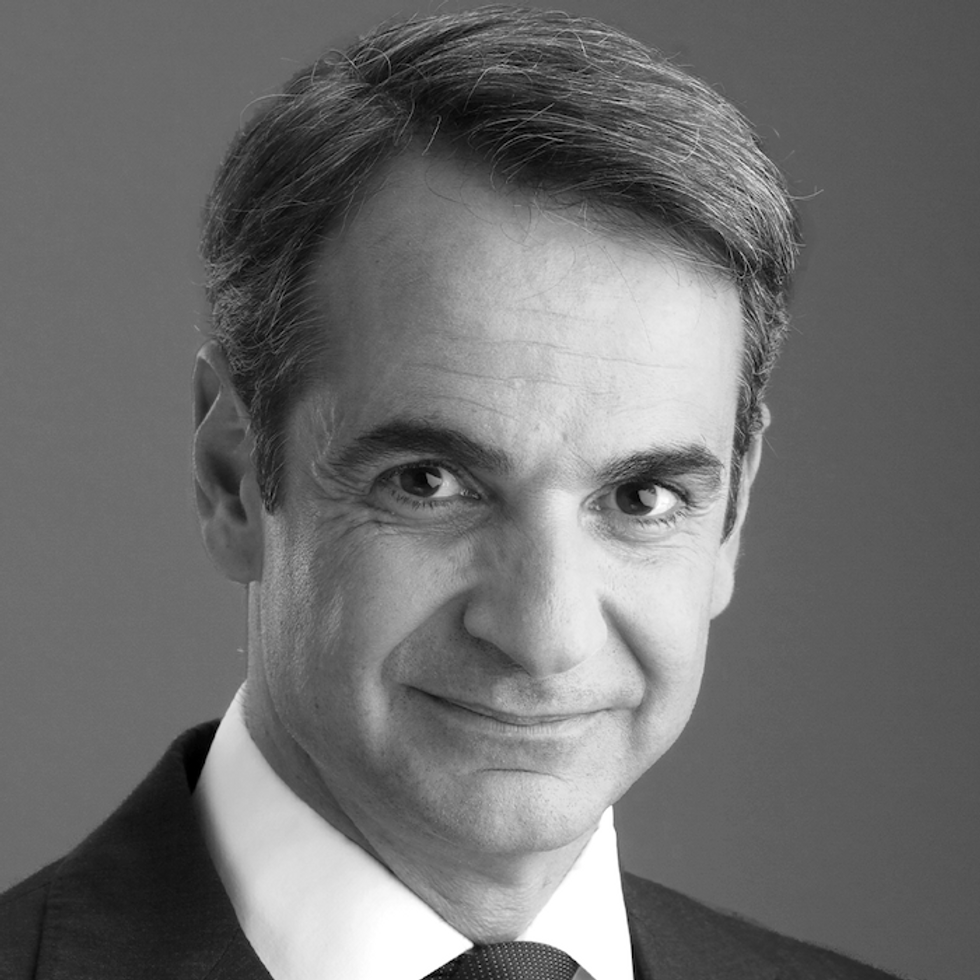
Prime Minister of Greece
Kristalina Georgieva
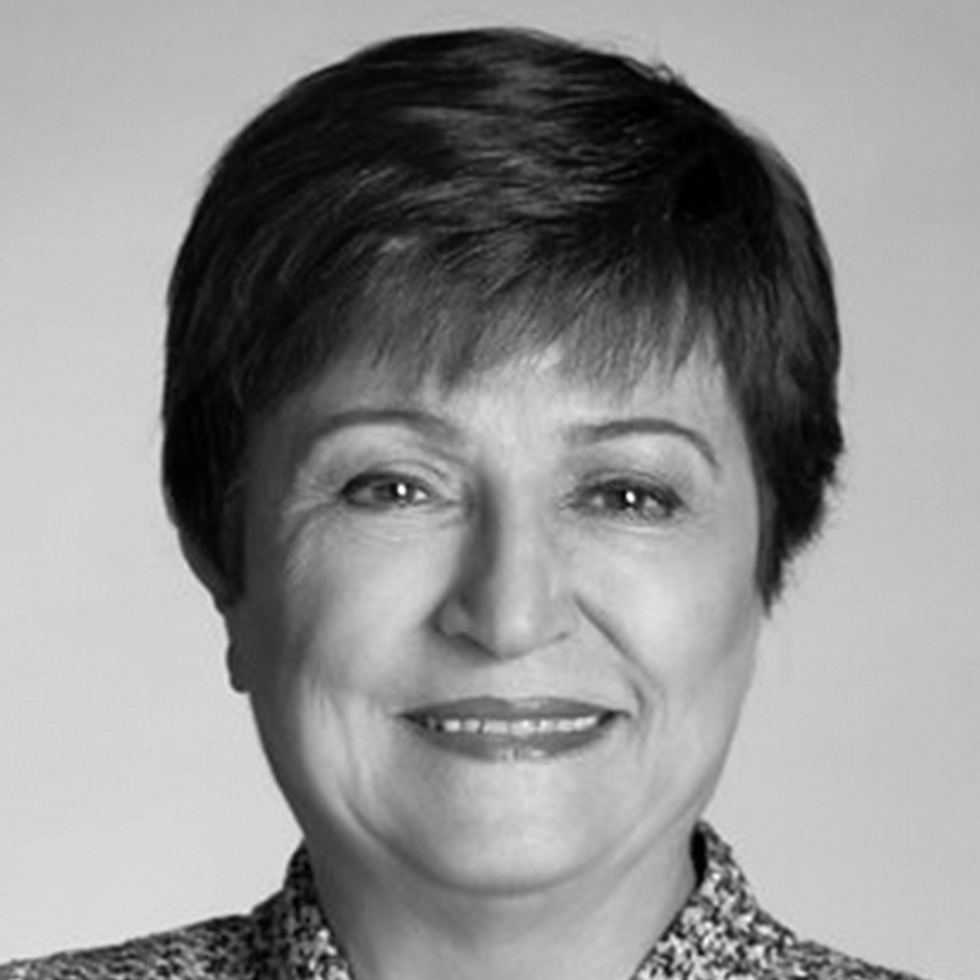
Managing Director, International Monetary Fund
Stéphane Bancel
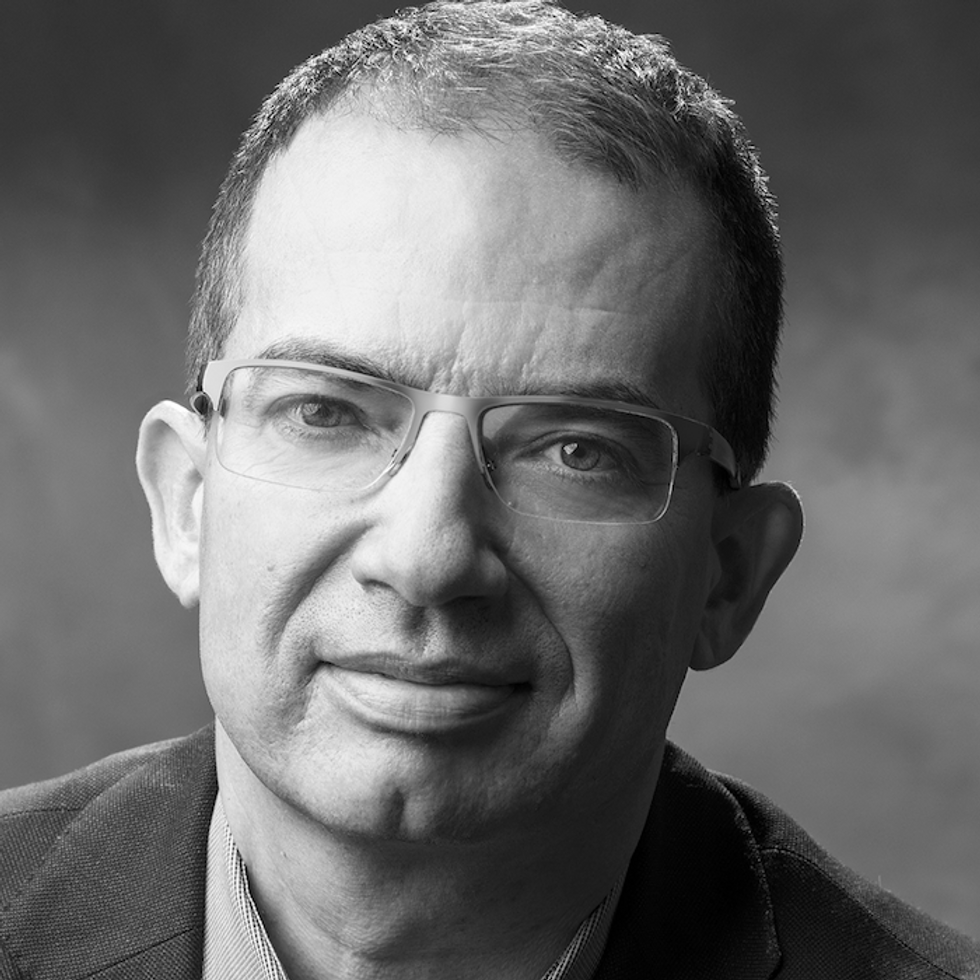
CEO, Moderna Therapeutics
Agnes Binagwaho
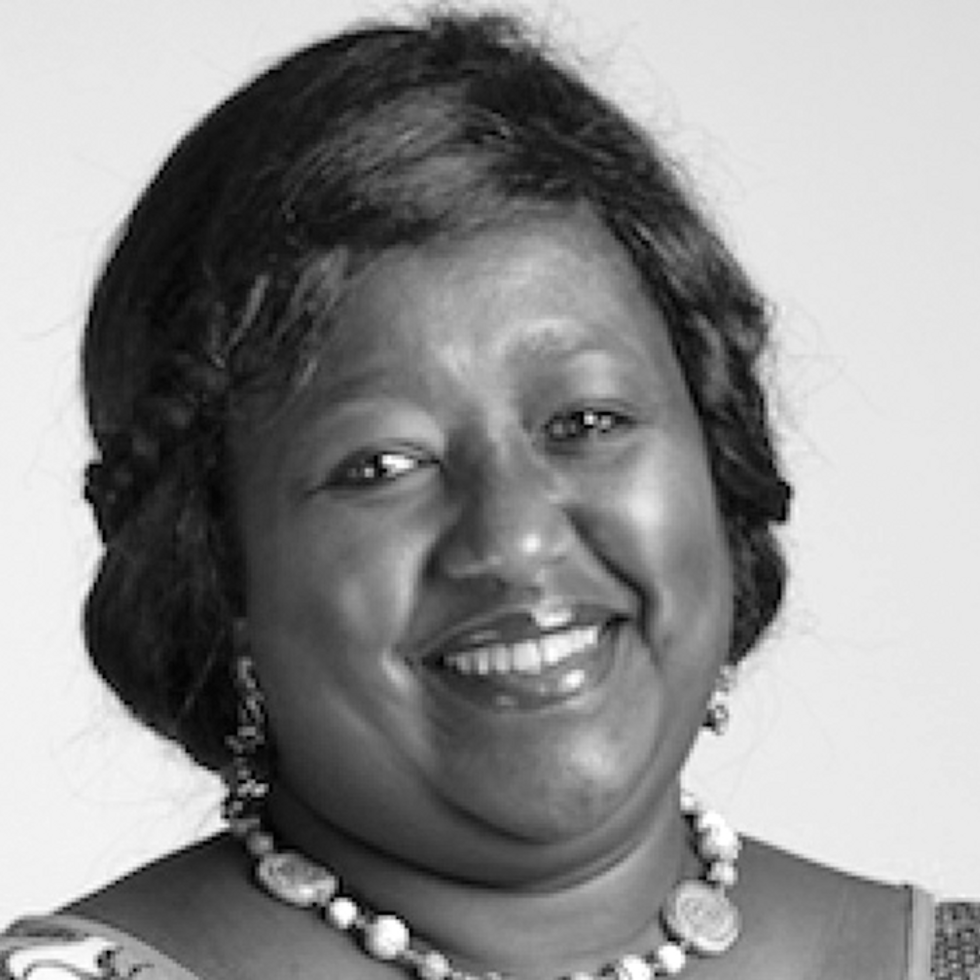
Vice Chancellor, University of Global Health Equity
Geoff Martha
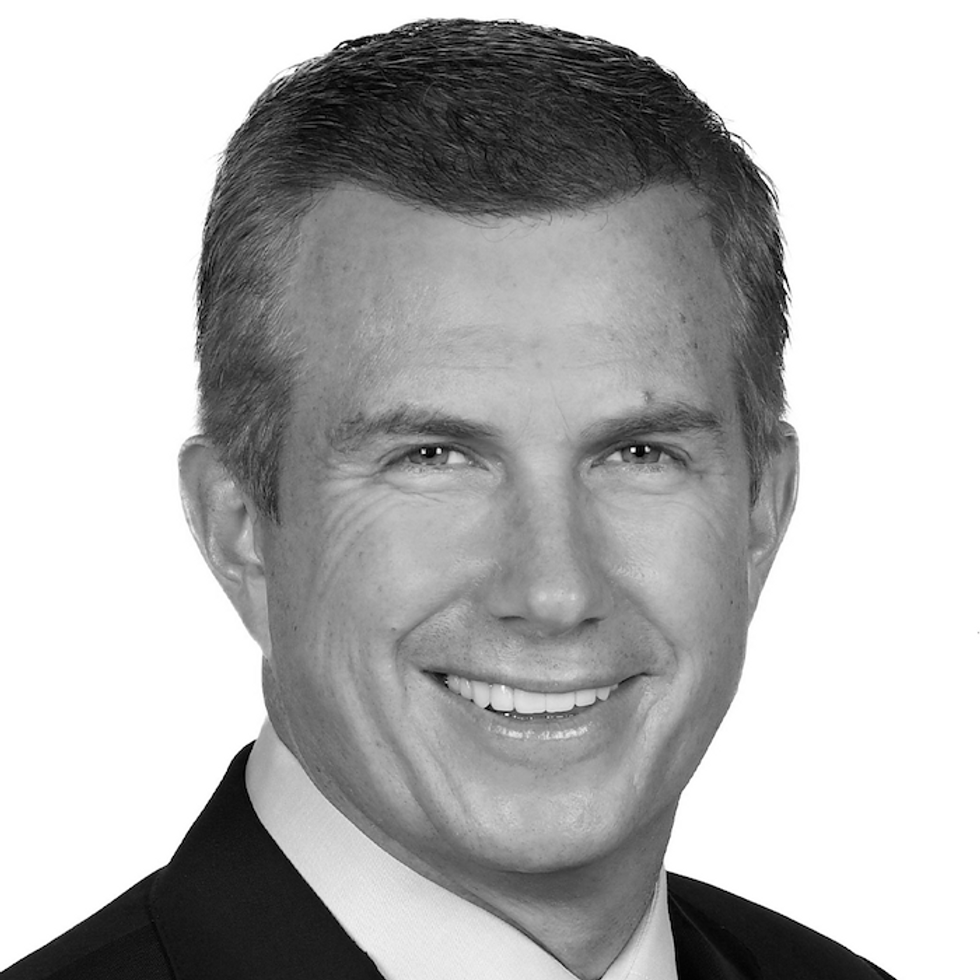
Chairman & CEO, Medtronic
Nancy Roman
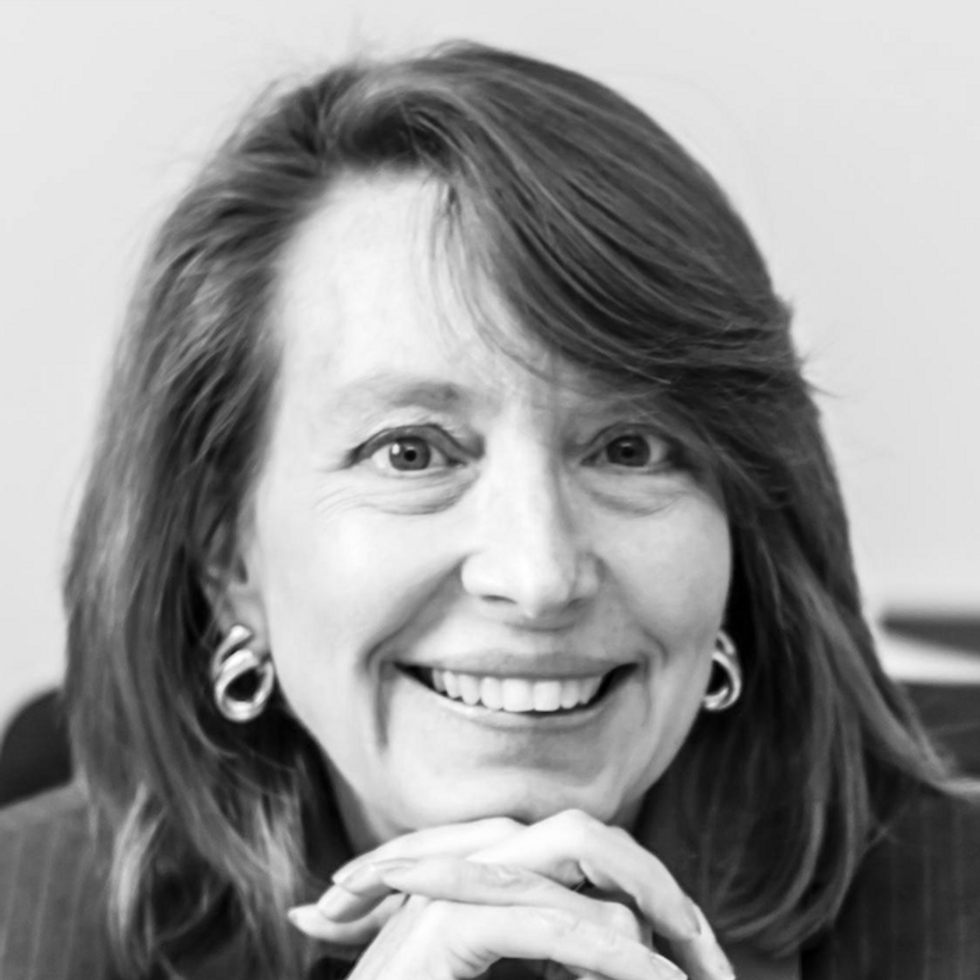
President and CEO, Partnership for a Healthier America
Paul Farmer
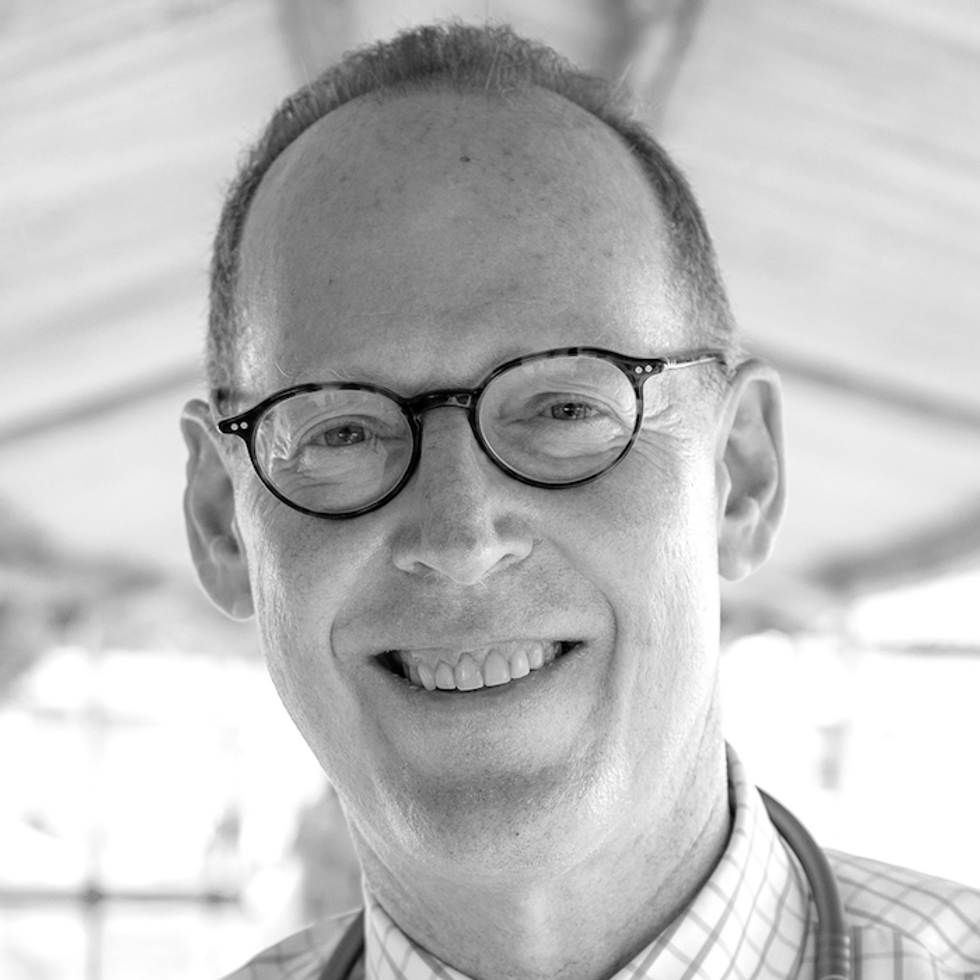
Professor, Harvard Medical School; Co-founder, Partners In Health
Gargee Ghosh
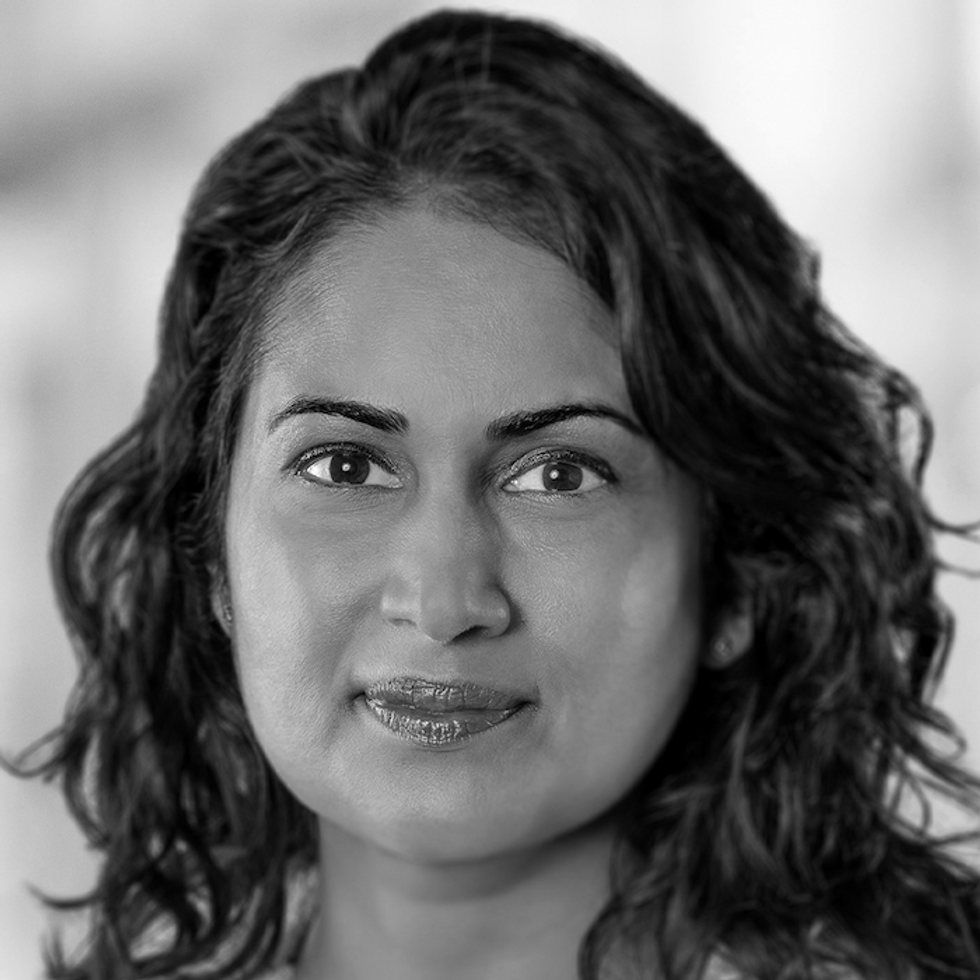
President, Global Policy & Advocacy, Gates Foundation
Amitabh Chandra
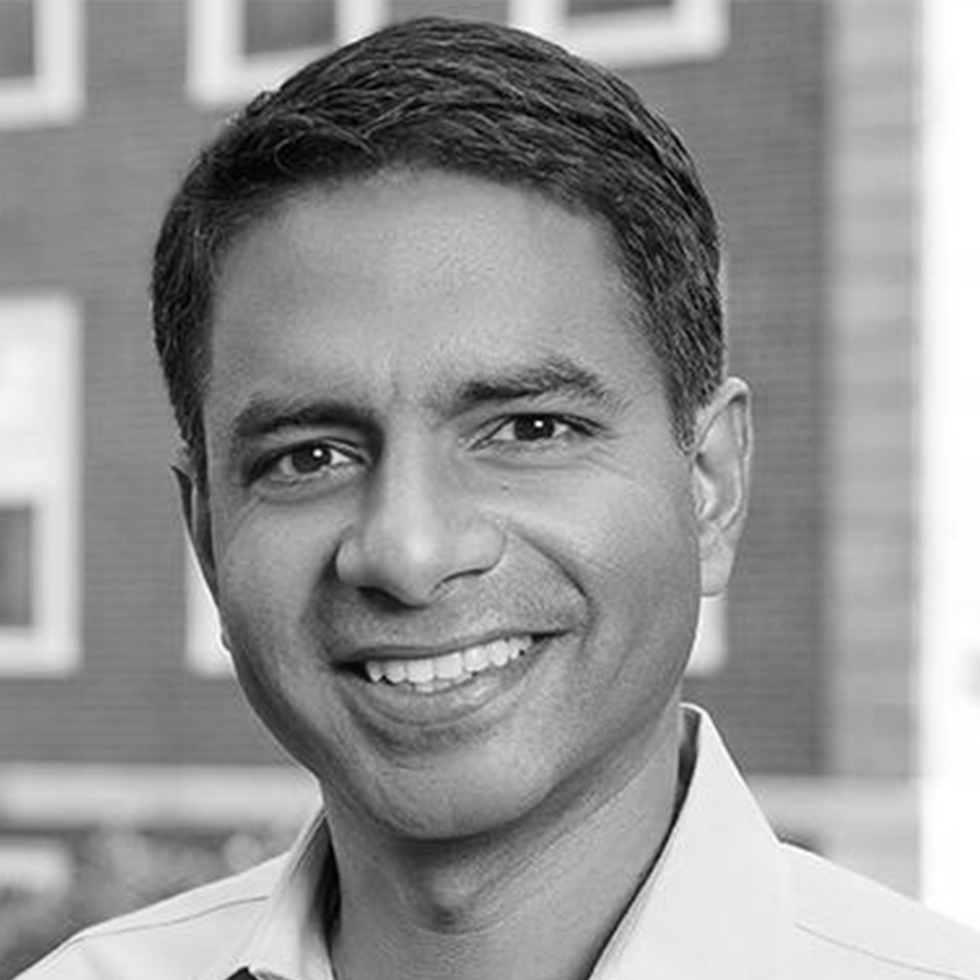
Professor, Director of Health Policy Research, Harvard Kennedy School
Sally Davies
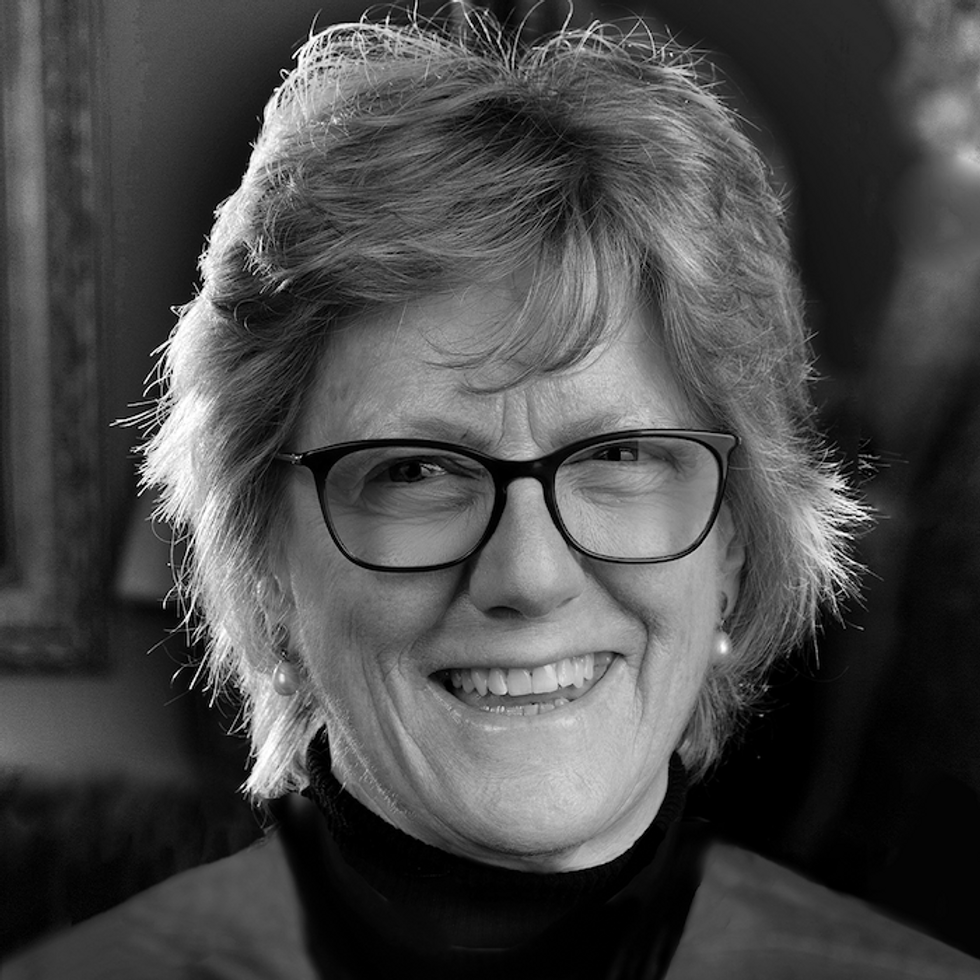
GCB DBE, Master of Trinity College
Laurie Garrett
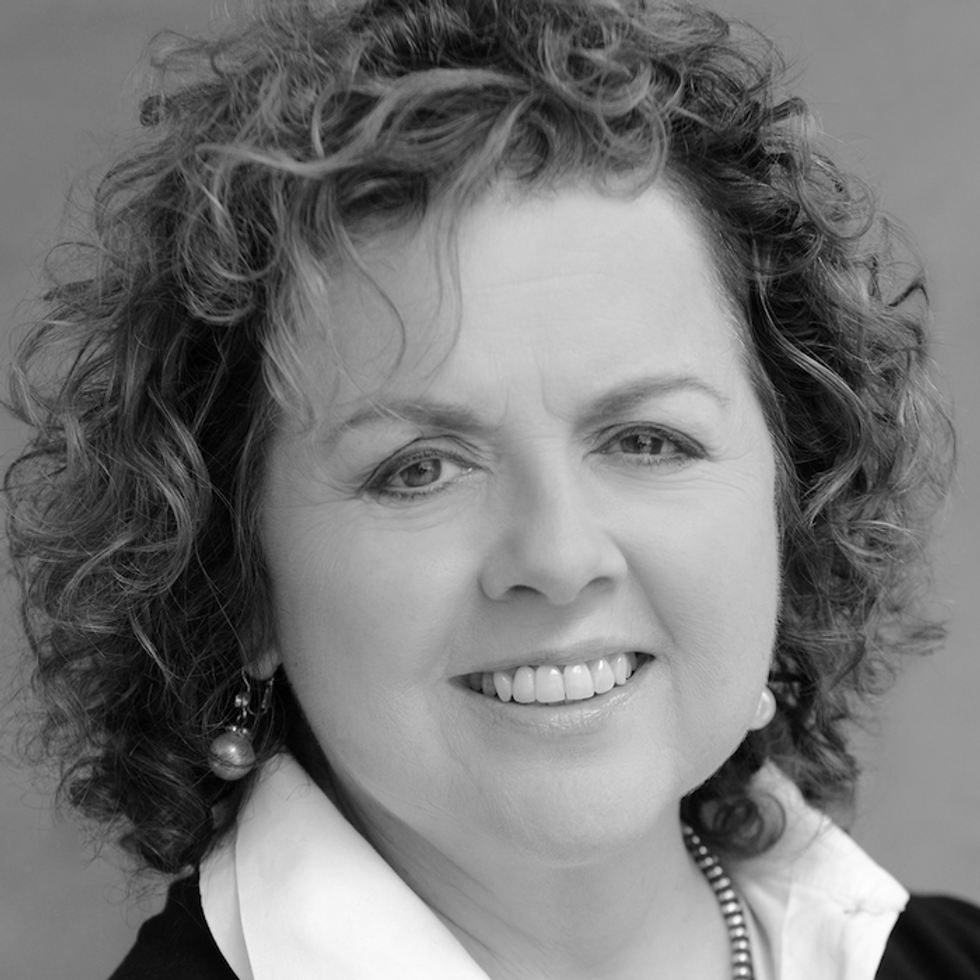
Pulitzer Prize-winning journalist
Jeh Johnson
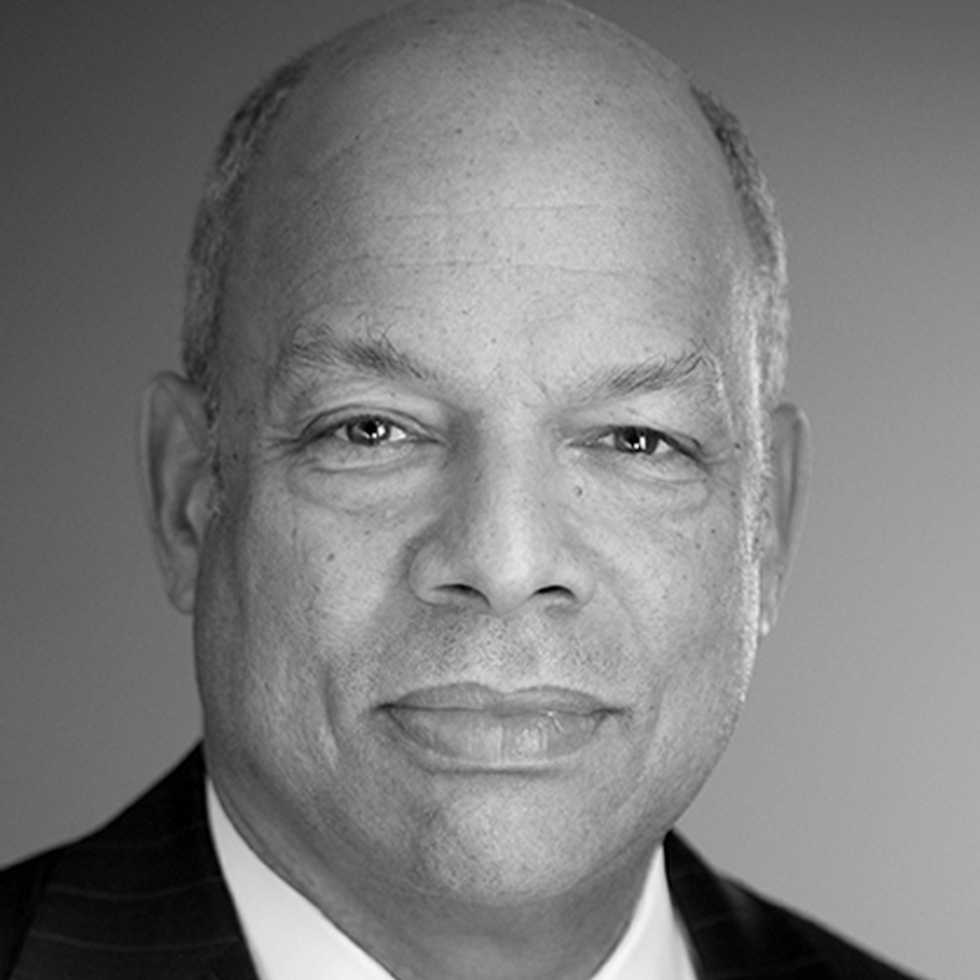
Partner, Paul, Weiss, Rifkind, Wharton & Garrison LLP; former Secretary of Homeland Security (2013 - 2017)
Albert Bourla

CEO, Pfizer
Noubar Afeyan
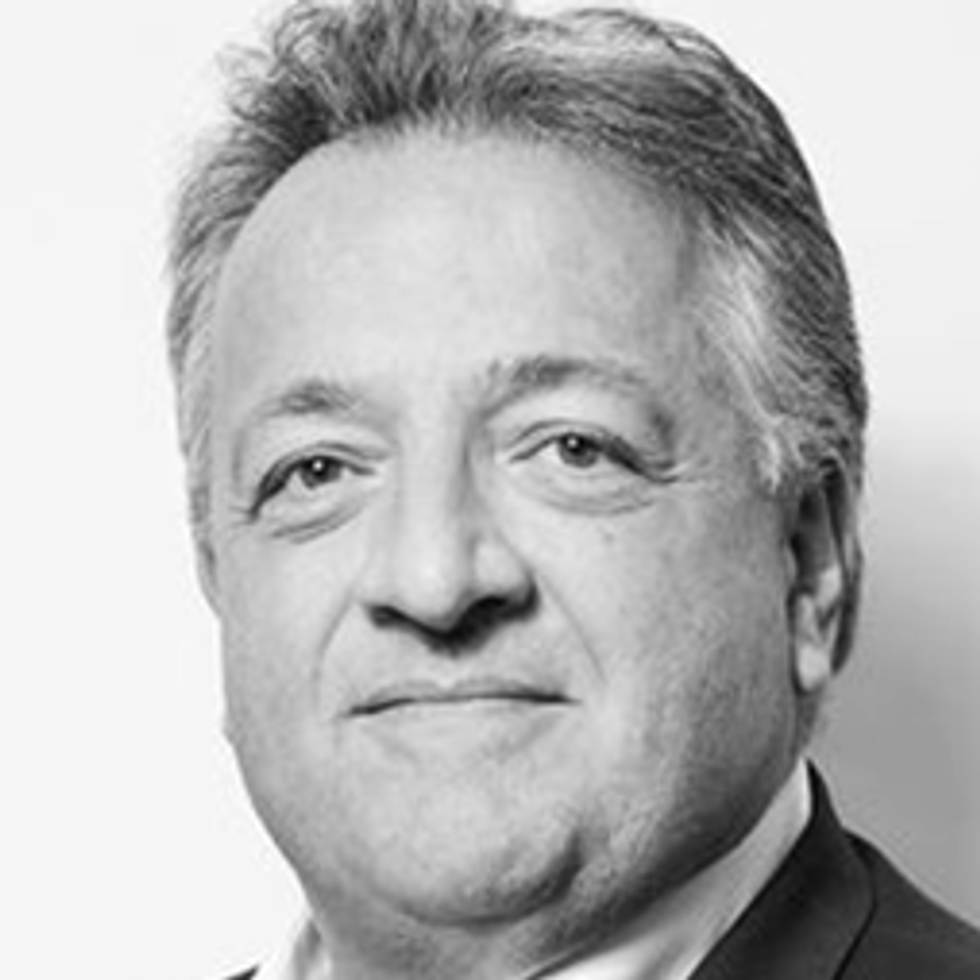
President & Founder, Flagship Pioneering
Ian Bremmer

President & Founder, Eurasia Group and GZERO Media
Additional speakers include:
- Junaid Bajwa, Chief Medical Scientist, Microsoft
- Matt Hancock, UK Health Secretary
- James Stavridis, Admiral, USN (Ret), former Supreme Allied Commander at NATO
- Sundar Raman, President, Global Home Care and P&G Professional, Procter & Gamble
- Greg Behar, CEO, Nestle Health Sciences
This event is produced by GZERO Media in partnership with Flagship Pioneering. We thank our event partners, Partnership for a Healthier America and Medtronic.
Register to join: two-day event on health beyond the pandemic
As the world works toward a post-pandemic state, join GZERO Media on June 8 and 9 for a two-part live event on health security, in partnership with Flagship Pioneering (which founded Moderna).
Days before this year's G7 meeting, we will bring political leaders and policy makers together with health experts and scientists to discuss lessons learned from and the latest innovations to preempt both COVID-19 variants and future infectious disease pandemics. The virtual event will be hosted by Noubar Afeyan, founder & CEO of Flagship Pioneering, and Ian Bremmer, president and founder of Eurasia Group and GZERO Media.
Attendance is free and open to the public. Please register to attend.
Tuesday, June 8, 2021 | 11 AM - 12:30 PM ET
- Beyond the Pandemic: A Radical New Approach to Health Security: As the world emerges from the COVID-19 pandemic, what are the lessons learned and how can we use them to not only prepare for, but also preempt the next pandemic? On day one, speakers will discuss new and powerful ways to combat the wide range of threats to our health, including preventing variants and future infectious disease pandemics, and tackling 'slow-burn' pandemics such as obesity and chronic disease. CNBC's Meg Tirrell will moderate the conversation.
Wednesday, June 9, 2021 | 11 AM - 12:30 PM ET
Additional speakers include:
- Kyriakos Mitsotakis, Prime Minister of Greece
- Kristalina Georgieva, Managing Director, International Monetary Fund
- Stéphane Bancel, CEO, Moderna Therapeutics
- Albert Bourla, CEO, Pfizer
- Geoff Martha, Chairman & CEO, Medtronic
- Nancy Roman, President and CEO, Partnership for a Healthier America
- Paul Farmer, Professor, Harvard Medical School; Co-founder, Partners In Health
- Agnes Binagwaho, Vice Chancellor, University of Global Health Equity
- Sally Davies, GCB DBE, Master of Trinity College
- Junaid Bajwa, Chief Medical Scientist, Microsoft
- Gargee Ghosh, President, Global Policy & Advocacy, Gates Foundation
- Laurie Garrett, Pulitzer Prize-winning journalist
- Amitabh Chandra, Professor, Director of Health Policy Research at the Harvard Kennedy School
- Matt Hancock, UK Health Secretary
- James Stavridis, Admiral, USN (Ret), former Supreme Allied Commander at NATO
- Jeh Johnson, Partner, Paul, Weiss, Rifkind, Wharton & Garrison LLP; former Secretary of Homeland Security (2013 - 2017)
- Sundar Raman, President, Global Home Care and P&G Professional, Procter & Gamble
- Greg Behar, CEO, Nestle Health Sciences
This event is produced by GZERO Media in partnership with Flagship Pioneering. We thank our event partners, Partnership for a Healthier America and Medtronic.



